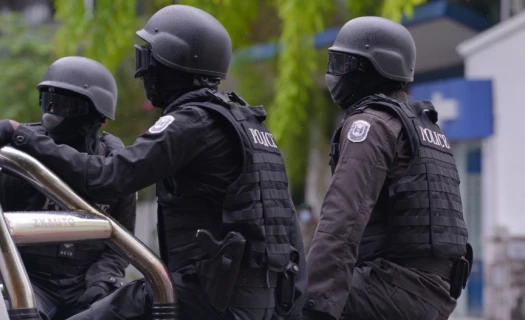Fri, 06 Feb 2026
|DHIVEHI
President committed to empowering WDCs
21 Feb 2025
|

President Dr Mohamed Muizzu meeting with the WDC of Male' City --- Photo: President's Office
Women's Development Committees (WDCs) were established by law with a noble and essential purpose: to enhance women's role in the administration of islands and cities and ensure their participation in addressing socio-economic challenges facing Maldivian society through grassroots efforts.
Yet, over the years, WDCs remained limited in scope. Due to insufficient financial resources, lack of a conducive working environment, and inadequate compensation, WDC members continued to resign annually.
During the previous Maldivian Democratic Party (MDP) government, discussions were held on resolving these issues. Speaking at the Viavathi Conference in 2022, former President Ibrahim Mohamed Solih pledged to create a better working environment for WDCs; however, despite holding a parliamentary majority, these promises remained unfulfilled until the end of his term. WDCs were not fully integrated into the decentralisation system, service delivery pathways were left undeveloped, and empowerment remained inadequate.
Recognising the problem and proposing solutions
This was a challenge that President Dr Mohamed Muizzu understood deeply when running for office. Through his experience with the Malé City WDC during his tenure as Mayor of Malé, he gained first-hand insight into the obstacles and difficulties faced by WDCs nationwide.
When crafting his manifesto, the President prioritised the expansion of WDCs' role as part of his broader women's empowerment agenda. He also outlined key legal reforms and strategies to tackle financial constraints.
Among his proposals were establishing salaries for WDC members, introducing Ramadan allowances, and improving work facilitation. These were tangible, long-overdue solutions addressing systemic issues that had persisted since the inception of the decentralisation system.
Enacting meaningful reforms
On February 19, 2025, President Dr Muizzu ratified the 14th Amendment to the Decentralisation Act, which clearly defines the powers of WDC and firmly establishes salary and benefits policies for the first time. The most significant changes include:
- Introducing proper compensation and Ramadan allowances
- Expanding WDCs' role by increasing their social and political responsibilities, while making it mandatory for councils to provide support and collaboration
- Allocating 5 per cent of state budget grants to councils specifically for WDCs, with legal procedures for disbursement
- Establishing a legal framework allowing WDCs to independently generate and manage funds
These changes marked the end of WDCs' uncertain and ineffective status. The law assigned them greater authority in community development, while also ensuring financial independence and operational empowerment. WDCs were elevated from a constrained position to a dynamic and influential one.
President Dr Muizzu has demonstrated through decisive action that expanding women's role in society is a policy he deeply values – beyond mere rhetoric. He has proven his commitment by securing the rightful status, empowerment, and dignity of WDCs. His leadership continues to transform WDCs into a powerful force for community development, cementing their role in shaping the nation's future.








